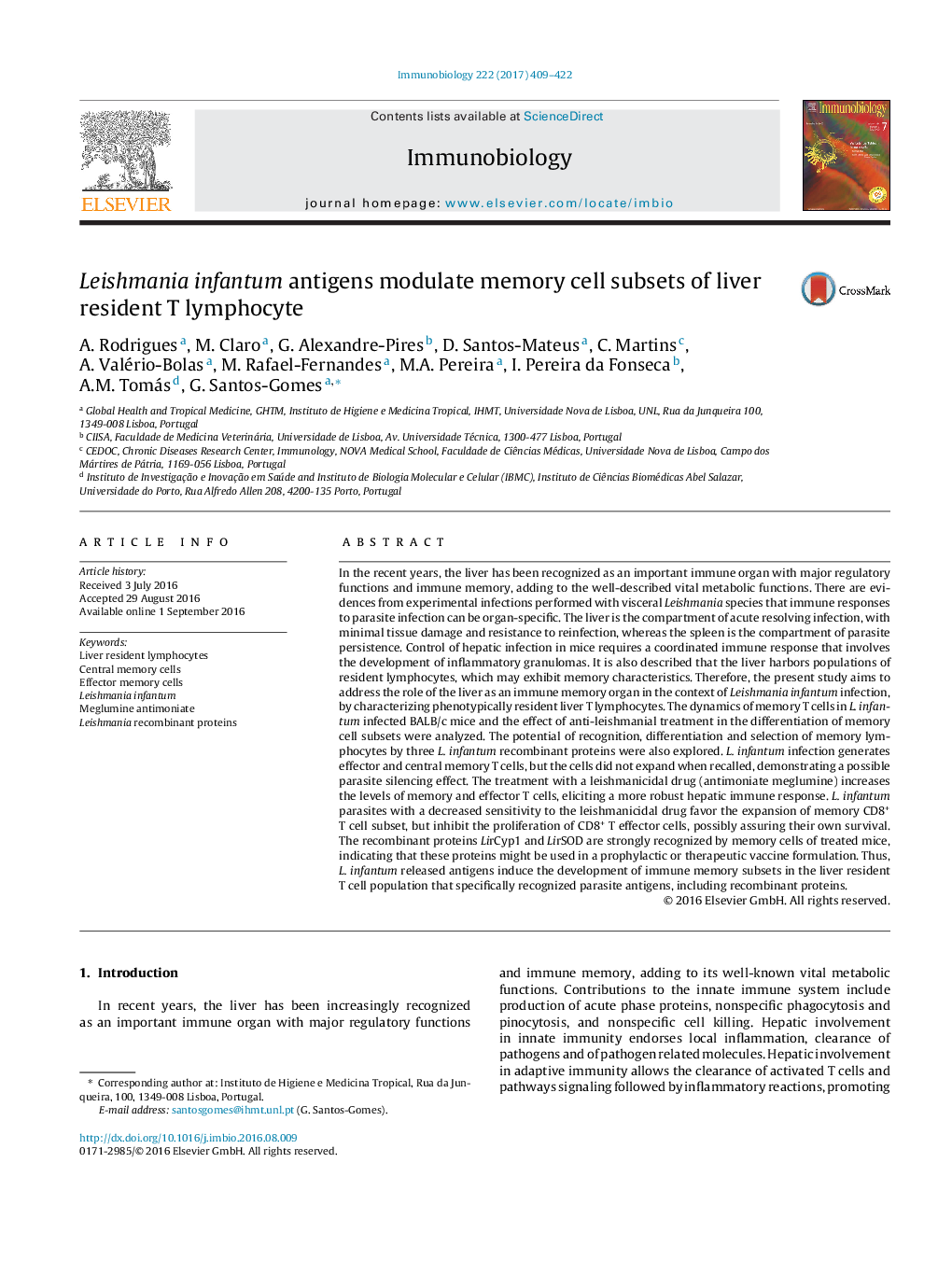| کد مقاله | کد نشریه | سال انتشار | مقاله انگلیسی | نسخه تمام متن |
|---|---|---|---|---|
| 5532682 | 1402064 | 2017 | 14 صفحه PDF | دانلود رایگان |

- L. infantum exerts a silencing effect on liver resident memory T cells.
- Meglumine antimoniate treatment promotes the expansion of liver memory T cells.
- Parasites less susceptible to drug suppress hepatic cytotoxic immunoresponse.
- Recombinant LirCyP1 and LirSOD promote the expansion of liver memory T cell subset.
In the recent years, the liver has been recognized as an important immune organ with major regulatory functions and immune memory, adding to the well-described vital metabolic functions. There are evidences from experimental infections performed with visceral Leishmania species that immune responses to parasite infection can be organ-specific. The liver is the compartment of acute resolving infection, with minimal tissue damage and resistance to reinfection, whereas the spleen is the compartment of parasite persistence. Control of hepatic infection in mice requires a coordinated immune response that involves the development of inflammatory granulomas. It is also described that the liver harbors populations of resident lymphocytes, which may exhibit memory characteristics. Therefore, the present study aims to address the role of the liver as an immune memory organ in the context of Leishmania infantum infection, by characterizing phenotypically resident liver T lymphocytes. The dynamics of memory T cells in L. infantum infected BALB/c mice and the effect of anti-leishmanial treatment in the differentiation of memory cell subsets were analyzed. The potential of recognition, differentiation and selection of memory lymphocytes by three L. infantum recombinant proteins were also explored. L. infantum infection generates effector and central memory T cells, but the cells did not expand when recalled, demonstrating a possible parasite silencing effect. The treatment with a leishmanicidal drug (antimoniate meglumine) increases the levels of memory and effector T cells, eliciting a more robust hepatic immune response. L. infantum parasites with a decreased sensitivity to the leishmanicidal drug favor the expansion of memory CD8+ T cell subset, but inhibit the proliferation of CD8+ T effector cells, possibly assuring their own survival. The recombinant proteins LirCyp1 and LirSOD are strongly recognized by memory cells of treated mice, indicating that these proteins might be used in a prophylactic or therapeutic vaccine formulation. Thus, L. infantum released antigens induce the development of immune memory subsets in the liver resident T cell population that specifically recognized parasite antigens, including recombinant proteins.
Journal: Immunobiology - Volume 222, Issue 2, February 2017, Pages 409-422